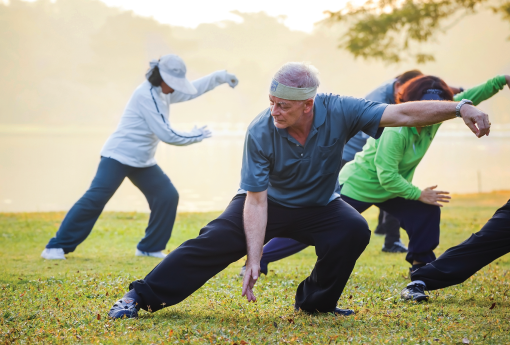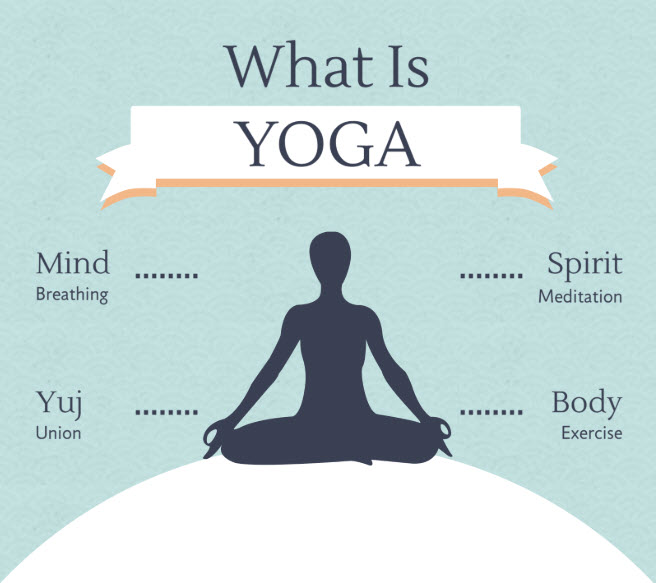
Yoga can be a great way improve flexibility, especially in your hips, back and thighs. This position increases blood circulation in the lower abdomen and improves blood flow throughout your body. It also helps to relieve stress. You can start by lying flat on your back. Next, extend your legs straight ahead. Fold your hips forward slowly by placing your arms below your shoulders. You can hold this position for as long as two minutes. Repeat as necessary.
Yoga may sound like a good way to get flexible. However, there are many benefits beyond improving your posture. This discipline helps you improve your health and well-being and helps you get into more poses. Stretching is an important part of this practice. Although a little time is necessary to master the poses, it's worth the extra effort and benefit. Once you've reached a certain level, you can move on to more challenging poses.

Standing leg pose: This is basically a modified Downward Facing Dog pose, except that one leg can be extended higher. The goal is to extend the left leg along the floor and lift the right leg towards the ceiling. You can modify this pose by bending your knees or straightening your legs. The standing leg position encourages you also to open your hips. You can lower your knees to the floor, and keep your eyes on your toes.
A forward bend is a great way to stretch the hamstrings. This pose will open your chest and stretch the hamstrings. You can do this by sitting on the ground, a cushion, or a block. For at least 30 seconds, you can hold your left hand in your right hand and clasp it with your left. During this time, your neck and shoulder pain should subside.
Half forward bend is the best way to stretch your spine. Standing on your hands, spread your fingers apart between your fingers, extend your arms out in front of your head. Your arms should be wrapped around your head. This will open your hips and hamstrings. You can wrap the strap around your ankle to increase the height of the stretch if you have a strong back. You can use a belt to replace the strap.

The Child's Pose is a very popular yoga pose and can be used in many ways. It is a resting position that aids in stretching the spine. It also improves hamstring flexibility. It is a great exercise for beginners. To begin, lie on your back with your knees bent and your legs apart. Next, extend your legs 90 degrees and place your hands below your shoulders. Keeping your head and neck up in this pose will help your lower back muscles.
FAQ
How does mental well-being affect daily life?
All people are affected by mental illness at some point in their lives. Mental illness is not something that people who are suffering from it don't seek treatment. Talk to someone when you feel that something isn't right. There are many treatments for depression, anxiety and stress.
What can you do if you are experiencing mental health issues
It's imperative to seek help when you're struggling with any mental health issue. Perhaps you've been through trauma or suffered abuse in the past. It's possible that this has affected how you think about yourself.
Another type of mental illness you might be experiencing is an addiction or eating disorder. These types of disorders can cause severe damage to your life.
They shouldn't be dealt with on their own. Instead, talk to someone who can help you. You can get the support you need from a professional therapist to help you overcome these difficulties.
Why is mental health important?
Work, play. Learn. And love. Mental health refers only to our overall health. We're referring to physical, psychological, social, spiritual, and environmental factors that impact us daily. The good news? There are many ways to take care of yourself mentally. You don’t have to do it all. Just get started!
Understanding where your mental health stands now is the first step toward improving it. Take this quiz to see if you're doing enough for your mental well-being. If you're not satisfied with your results, you might consider making lifestyle changes.
Suppose you scored high, congratulations! Here are some things you can do that will help improve and maintain your mental health.
-
Get Enough Sleep. Getting adequate rest helps keep your brain sharp and energized. The American Academy of Pediatrics (AAP), suggests that you get 7-8 hours of rest each night.
-
Exercise Regularly. Exercise releases endorphins which can make you happy and less likely be stressed. Five times per week, aim for 30 minutes of exercise.
Why is students' mental health important?
Students need to feel good about their mental health in order to be able focus on school and succeed academically. Without feeling like yourself, you will not be able perform well at school. Depression can lead to students missing class and poor grades. This may lead to dropping out of high school and eventually college.
You should talk to your parents and teachers if you have depression. They can help get you the care you deserve.
It is important to remember that not all people with depression need medication. Talk therapy is very effective for many people. A counselor is a great option for anyone who wants to seek help.
Statistics
- Appropriate nutrition and exercise are likely among the most efficacious and cost-effective positive mental health interventions. (ncbi.nlm.nih.gov)
- Similarly, for positive mental health, there is likely to be substantial agreement about some typical components (e.g., resilience to stress) 6, and controversy about more atypical components (e.g., career consolidation). (ncbi.nlm.nih.gov)
- Similarly, while there is some agreement about the boundaries of typical mental disorders 2, there is likely less agreement about those for positive mental health. (ncbi.nlm.nih.gov)
- It does have some influence, but not nearly as much as we might think, so focusing less on attaining wealth will likely make you happier (Aknin, Norton, & Dunn, 2009); (positivepsychology.com)
- More than 50% will be diagnosed with a mental illness or disorder at some point in their lifetime.3 (cdc.gov)
External Links
How To
What are the Key Factors that Make Mental Health Vital?
Mental health refers the state of your mind, and emotional well-being. It can affect how you feel, think and act, how you relate to others, how you sleep, eat, work learn, play, or just enjoy your life.
Mental health is an important topic for everyone. When we refer to mental health, we often refer to depression. Depression is a serious illness that affects millions each year.
The term clinical depression is used to describe depression. It requires treatment by a physician. However, there are many forms and severity levels of depression.
According to the National Institute of Mental Health (NIMH), depression can be described as "a common mood disorder characterized in a depressed mood most of a day almost every day, loss of interests or pleasures in almost all activities and feelings of guilt or low-self-worth, disturbed sleeping or appetite, poor coordination, thoughts of death or suicidal thoughts or actions."
People experience depression in various ways. Others may feel helpless, sad, hopeless and unmotivated. Others may feel empty, restless or agitated. Others may not feel anything at all.
Depression can be managed. You can get help for depression by taking medications, exercising, changing your diet, or making lifestyle changes. If left untreated, however, depression can cause problems at home, school, work, and in relationships.
Depression is more common in females than in men. However, both men and women can be affected. Depression is the number one cause of disability in the world for women and men between the ages of 15 and 44.